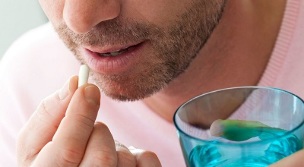
Antibiotics for prostatitis if a patient sees a urologist in an acute stage of inflammation are prescribed almost immediately. That is, the doctor will not wait for the test data. Therefore, in the early days, a drug with a broad spectrum of action is selected, the selection scheme is very similar to selecting antibiotics for cystitis.
After laboratory data is received by the doctor, it usually takes two to three days, the decision is made whether to continue the selected therapy regimen or to prescribe a new, more effective drug.
When choosing a medicine, the doctor must take into account the patient's age, the presence of certain somatic diseases in his anamnesis and allergic reactions.
The patient, in turn, must alert the doctor about the antibiotics he has used previously.
If a man was treated with some type of medication a few weeks before prostatitis, it is highly likely that, at this stage, it will not be as effective as needed to relieve inflammation.
Among the different groups of antibiotics, there are so-called "reserve" drugs, which include drugs with a strong effect on the body. The urologist only prescribes them if previous conservative treatment does not help.
Antibiotic therapy requires certain conditions.
- Antibiotics are prescribed for a specific period of time. It usually takes at least 2 weeks. In the future, the doctor evaluates the condition of the prostate and cancels the medication or advises the continuation of treatment;
- The dosage of the medication is also selected individually;
- The entire course of treatment must be completed. If interrupted, the body creates adequate conditions for the transition from an acute to a chronic infectious process;
- It should not take more than three days, from the moment you start using antibiotics, until the pain and discomfort are reduced. If after this period the condition has not improved, you will need to see a doctor again for a review of therapy and the selection of another antibiotic.
Antibiotic therapy is one of the most important conditions for the complete recovery from bacterial prostatitis. A sick man must understand that his life without problems in the future depends on adherence to the entire treatment regime.
Antibiotics for prostatitis are selected from the following groups of drugs:
- Penicillins. This group has a wide range of effects on bacteria and is therefore most often prescribed just before data is obtained in the laboratory. Another advantage of these drugs is their budget price and, therefore, all patients can receive treatment;
- The macrolidespenetrate perfectly into the tissues of the prostate and begin to fight infections after the first ingestion. This group of drugs is practically non-toxic and does not affect the state of the intestinal microflora;
- Cephalosparins. They are mainly used in hospitals, as they are administered intramuscularly or intravenously;
- Tetracyclines.Effective for chlamydia prostatitis. But these drugs are highly toxic and have a spermatoxic effect. Therefore, before planning the conception, they are not prescribed;
- Fluoroquinolones.Used when there is no effect of drugs from other groups.
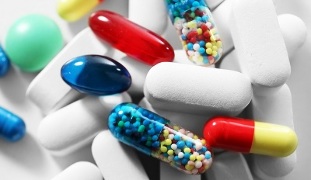
When using antibiotics for the first time, it is necessary to record all changes in health status. Often, these medications cause severe allergic reactions, especially in patients with a history of allergies.
At home, it is not always possible to get rid of prostatitis, because before prescribing any antibiotics, the doctor must check your reaction to the bacteria found.
Due to the large number of side effects, treatment should be carried out under the supervision of a specialist. In case of unpleasant symptoms, you should contact your doctor immediately and replace the medicine.
Antibiotics for the treatment of prostatitis, available in pill form, may contain different active ingredients. Therefore, the list of these drugs is wide enough and only a doctor can prescribe the right one.
Fluoroquinolones
The most effective antibiotics for prostatitis, according to urologists, belong to the group of fluoroquinolones. The benefits of fluoroquinolones in the treatment of inflammation of the prostate are:
- large volume of distribution;
- creation of high concentrations of the substance in the prostate;
- penetrates cells;
- has a post-antibiotic effect - after withdrawing the drug, a concentration that inhibits bacterial growth remains within the cells for several days;
- are taken more often once a day.
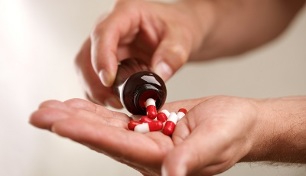
There are several generations of this type of antibacterial medication. The second, third and fourth generations are most often used in urological practice.
Antibiotics against prostatitis of the group of third generation fluoroquinolones, fourth generation allow the treatment of inflammatory processes initiated by mixed microflora - facultative anaerobes, gram-positive, gram-negative bacteria (Escherichia coli, staphylococci, enterococci), bacteria, atypical intracellular bacteria, mycoplasma.
The active ingredients in fluoroquinolone preparations for prostatitis include: levofloxacin, ciprofoloxacin, moxifloxacin.
Antibiotics for acute prostatitis in men can be used not for a month, but for two weeks, if the disease is initiated by opportunistic flora.
As a rule, drugs in this group are well tolerated by patients. The most common adverse events are nausea and diarrhea. Phototoxicity is rarely recorded.
If chronic bacterial prostatitis has started, a different treatment strategy should be used.
The symptoms are not as pronounced as in the case of an acute process. The patient complains of infrequent pain, problems with urination and problems of a sexual nature.
Chronic bacterial prostatitis is dangerous: for most men, it disappears almost imperceptibly, accompanied by occasional pain, but leads to infertility, erection problems, prostate ablation and prostate adenoma.
All of this comes up suddenly, when obvious signs of these problems start to bother man.
A man oppressed by unpleasant sensations and episodic pain, which becomes more frequent with time, seeks a urologist.
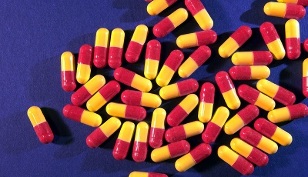
The doctor, as in acute prostatitis, performs the necessary tests (blood tests, urine tests, palpation and bacterial culture), after which he develops a treatment scheme.
On average, treatment takes 4 to 8 weeks. This is a serious stress for the body, because in addition to the targeted microflora, our friends also suffer. Therefore, the use of antibiotics is associated with the use of drugs that regenerate the gastrointestinal microflora in the first place.
In addition to antibiotics, physiotherapy and medications are prescribed for the patient to relieve edema and relax the smooth muscle of the prostate, one should not forget the folk remedies that accelerate the therapeutic effect in complex therapies.
Tetracyclines
Also available in two forms of administration, highly active against chlamydia and mycoplasma, therefore, its effectiveness is greater in chronic prostatitis associated with sexually transmitted diseases. The ideal drugs are those with the best pharmacokinetic data and tolerability.
However, tetracyclines have a destructive effect on gram-positive flora, including activity in nosocomial infection by methicillin-resistant staphylococci. Drugs destroy intracellular forms of chlamydia, mycoplasma, ureaplasma. The advantage of tetracyclines is the lower frequency of intestinal dysbiosis, as well as the presence of an anti-inflammatory effect. Regarding the intestinal, Pseudomonas aeruginosa, are ineffective.
For chlamydia, mycoplasma and ureaplasma infections, the drugs are taken for 3 weeks, the rest of the pathogens takes two weeks.
The means of this group should not be taken with the simultaneous use of dairy products.
Macrolides in the treatment of prostatitis
Macrolides (including azalides) should only be used under certain conditions, as there is only a small amount of scientific research that confirms their effectiveness in prostatitis, and this group of antibiotics has little activity against gram-negative bacteria.
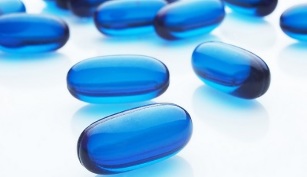
But you should not completely abandon the use of macrolides, as they are quite active against gram-positive bacteria and chlamydia.
Antibiotics from the macrolides group in the treatment of inflammation of the prostate have a growth-inhibiting effect against atypical intracellular bacteria, gram-positive microorganisms (coconuts).
The advantage of macrolides in the treatment of inflammation of the prostate is their low toxicity compared to fluoroquinolones. The macrolides create high concentrations of the active substance in the gland tissues, have a post-antibiotic, anti-inflammatory and immunomodulatory effect. The drugs have a beneficial effect on phagocytosis, they inhibit oxidative stress in cells. Macrolides can be used in teenagers.
If prostatitis is caused by opportunistic flora, treatment can take two weeks. The drugs can be taken in combination with fluoroquinolones.
Many patients are interested in knowing which antibiotics should be taken for prostatitis in men, if they have a history of allergy to penicillin. The media of the macrolide group do not present cross-allergy with medications from the penicillin and cephalosporin group, so they can be safely ingested by allergy sufferers.
























